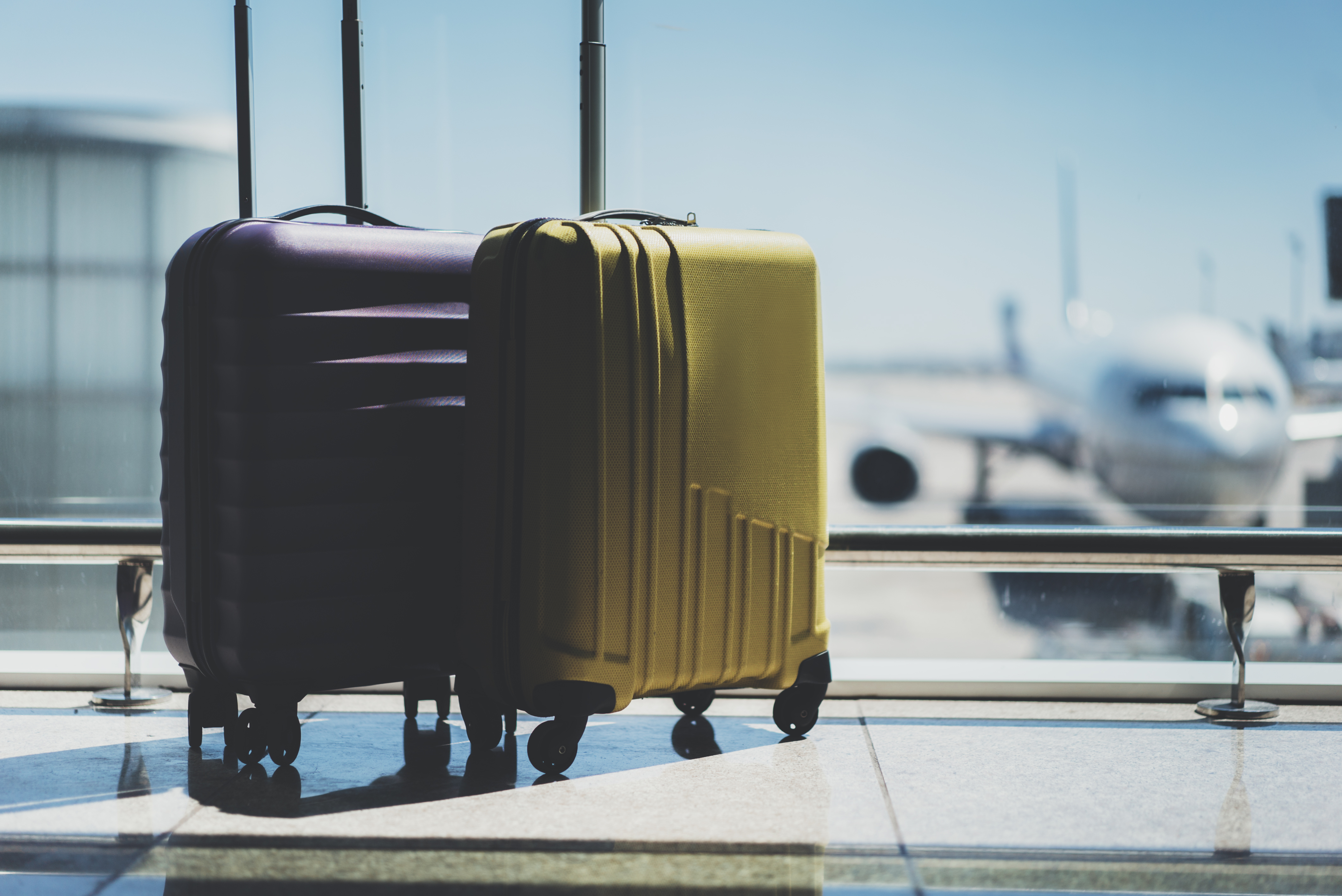This article was last updated on 11 June 2020
On 17 March 2020 the UK Government Foreign and Commonwealth Office (FCO) responded to the coronavirus pandemic by advising against all but essential travel worldwide. Initially put in place to last 30 days, this advice has now been extended for an “indefinite period”.
The consumer charity Which? notes that this:
…is causing confusion for consumers as well as holiday companies. People are unsure how far into the future holidays and flights should be cancelled.
This article outlines the rights of passengers where flights and package holidays have been cancelled and explores the impact of the coronavirus on the travel industry.
We’ve also published a blog post on coronavirus and tourism which explores the impact the virus is having on the tourist industry in Wales.
Passenger rights
Cancelled flights
Currently no commercial flights are operating from Cardiff Airport, whilst elsewhere airlines are operating much reduced timetables with a huge number of flights being cancelled.
EU Regulation 261/2004 (PDF,132KB) establishes common rules on compensation and assistance to passengers in the event of cancelled or delayed flights. Under this regulation, passengers whose flights have been cancelled are entitled to a refund.
This applies to passengers flying out of a UK or EU airport or flying back to a UK or EU airport with a UK or EU airline. In the case of non-EU regulated airlines, a passenger’s rights depend on the terms and conditions of their contract with the airline. The House of Commons Library has published a briefing on air passenger rights which provides more information.
The Civil Aviation Authority (CAA) website provides advice on the implications of coronavirus for passengers and holiday makers. With regard to the cancellation of flights, the CAA says:
If the Government has advised against all but essential travel to your destination, your airline will likely cancel your flight and offer a full refund.
If the airline has confirmed that your flight will go ahead, they may still be able to offer a refund, allow you to change your booking to a later date, or your travel insurance may be able to provide assistance.
Passengers with future flight bookings will need to wait to find out whether the advice from the FCO changes and whether their flights can continue as planned. Should the FCO change its advice regarding travel, flights may go ahead. In this instance passengers who no longer wish to travel because of the virus would not be automatically entitled to a refund. However the CAA provides the following advice:
If you choose not to travel and the FCO has not advised against all but essential travel to your destination, you may be subject to your travel company's terms and conditions. An exception to this may be if your doctor has advised you not to travel, in which case you should contact your travel insurance provider.
Package holidays
UK consumers who have paid for a package holiday which includes flights and accommodation (and sometimes extras such as airport transfers) are protected by the Package Travel and Linked Travel Arrangements Regulations 2018 (the 2018 Regulations).
The 2018 Regulations implement the EU Package Travel Directive. They protect travellers’ rights when booking package holidays in terms of cancellation, repatriation and refunds.
In line with the 2018 Regulations, travellers are entitled to request a full cash refund, which should be provided within 14 days, in the event of a cancellation or a significant change to their itinerary.
However, as has been widely reported many operators are heavily pushing customers to accept credit vouchers or to rebook for future travel instead. Although customers may choose to accept this option, it is important to note that they are legally entitled to a cash refund. The CAA website states:
Your travel company may offer you vouchers to be redeemed against a future booking, however you are entitled to request a full cash refund if you do not wish to accept vouchers.
ABTA (formerly the Association of British Travel Agents) suggests that forcing refunds may put many holiday operators out of business and has called for the UK Government to temporarily change the 2018 Regulations. This is discussed in more detail later in this article.
Package holidays are also usually covered by ATOL (Air Travel Organiser’s Licence) or ABTA (formerly the Association of British Travel Agents) to protect customers should the travel company they’ve booked with go bust. The ATOL scheme is specifically designed to cover people who fly, whereas ABTA covers rail, road, or sea travel holidays.
Travel insurance
The Association of British Insurers has published guidance for passengers concerning travel insurance. It states that:
…generally, insurance cancellation or travel disruption will relate to FCO advice. This decision [to advise against travel] will, therefore, allow many (or ''the majority of'') policyholders with cancellation or travel disruption cover in place to claim for cancelled trips that were already booked and cannot now go ahead.
It also seeks to reassure passengers that should travel restrictions be lifted, future trips already booked under existing policies will be covered.
There is less certainty over policies yet to be taken out for future or rearranged trips and it is not yet clear what impact coronavirus will have on future policy terms or premiums.


Impact on airlines and operators
Globally, the International Air Transport Association (IATA) has estimated that the current pandemic could lead to a $314 billion loss of passenger revenue and put 25 million jobs at risk.
Even prior to the coronavirus outbreak, the travel industry has been hit hard in recent years with the collapse of Thomas Cook in 2019. Cardiff Airport also lost a major carrier following the collapse of Flybe in March 2020 which prompted the Welsh Government and the Airport to begin working towards securing alternative operators for lost routes.
Possible solutions to the current crisis include operators making long-term strategic changes to business models. For example, media reports indicate that British Airways may not reopen its Gatwick operation after the pandemic passes. Similarly, on 5 May it was reported that Virgin Atlantic would be ending its operations at Gatwick, making over 3,000 UK based staff redundant.
On 13 May 2020 the travel company Tui described the current pandemic as the “greatest crisis the industry…has ever faced” and warned it may lead to 8,000 jobs being cut worldwide. The company has published a plan outlining how holidays to its hotels may change when travel restrictions are lifted along with advice for customers.
On 22 May 2020, the UK Government announced that a 14 day quarantine period for international arrivals into the UK would come into force on 8 June 2020. This applies to all international arrivals aside from those on a short exceptions list, such as road haulage workers
On 3 June 2020 the Home Secretary made a statement to the House of Commons setting out further detail, including on how the rules will be enforced. The statement notes that it is for each of the devolved administrations to set their own enforcement measures.
The Health Protection (Coronavirus, International Travel) (Wales) Regulations 2020 came into force on 8 June 2020 and set out the requirements for international arrivals into Wales. The regulations also set out how the rules will be enforced through fixed penalties including a fine of £1000 for those who breach the requirements to isolate.
Prior to the announcement, on 11 May 2020, leaders of UK airlines and airports, including the CEO of Cardiff Airport, collectively wrote to the Prime Minister suggesting that:
…an open-ended quarantine, with no set end date, will make an already critical situation for UK aviation, and all the businesses we support, even worse.
A number of travel operators have also expressed concerns over the quarantine period.
Calls for support
Aviation
On 18 March 2020, the UK Government issued a press release indicating it was working on a “bespoke package of support for aviation”. However on 24 March it was reported that the Chancellor, Rishi Sunak, had told airlines the UK Government “would only step in as a last resort". On 2 May, the UK Government Secretary of State for Housing, Communities and Local Government, Robert Jenrick, said in a press conference that the UK Government wanted to support the aviation industry “in any way we can”.
No announcement of industry-wide support has followed to date although individual airlines have received some support. For example EasyJet has secured a £600m loan from the Bank of England’s Covid Corporate Funding Facility, designed to assist larger firms during the pandemic.
On 31 March 2020 the Airport Operators Association (AOA) suggested the UK response was “falling behind other economies in supporting its aviation industry”. The British Airline Pilots’ Association has also warned that the UK aviation industry is in “a death spiral” and in need of immediate government support to save jobs.
On 11 May 2020 the Minister for Economy, Transport and North Wales, Ken Skates, suggested that “the aviation sector is perhaps in the deepest crisis it has ever experienced”. Responding to questions from the Senedd’s Economy, Infrastructure and Skills Committee, the Minister called for UK Government support for Cardiff Airport and regulatory changes in non-devolved areas.
Travel operators
There have also been calls for government support for travel and tour operators. ABTA argues that the protections provided in the 2018 Regulations (discussed above) were not designed to cope with the demands placed on them by these extraordinary circumstances. As outlined, there have been multiple reports of travel companies issuing customers with vouchers as opposed to the cash refund they are entitled to.
On 16 March 2020, ABTA wrote to the UK Government calling for temporary changes to be made to the 2018 Regulations with immediate effect. Proposed changes include removing the 14 day window within which refunds must be issued and for credits to be allowed as an alternative to cash refunds.
On 19 March 2020, the EU Commission updated its guidance on the Package Travel Directive in relation to customer refunds. The guidance encourages customers to accept credit notes, as long as the customer is allowed to ask for a full refund if they do not use the credit note towards a new booking. ABTA subsequently issued a press release calling for the UK Government to take a similar approach. It said:
…the Package Travel Directive is the legal framework on which the UK Package Travel Regulations are based, and we now need the UK Government to follow the European Commission’s lead and confirm a similar approach.
Whilst recognising the challenges being faced by airlines and travel companies, Which? argues that consumers should not have to prop up the travel industry. It has published proposals which it says will “support the travel industry and make sure passengers aren’t left out of pocket for cancelled flights or holidays”. Among other proposals, it suggests that credit notes should be offered but be optional and for the 14 day period in which operators must issue refunds to be temporarily extended to 1 month.
To date there has been no announcement by the UK Government that any temporary changes would be made.
Article by Francesca Howorth, Senedd Research, Welsh Parliament
We’ve published a range of material on the coronavirus pandemic, including a post setting out the help and guidance available for people in Wales and a timeline of Welsh and UK governments’ response.
You can see all our coronavirus-related publications by clicking here. All are updated regularly.






